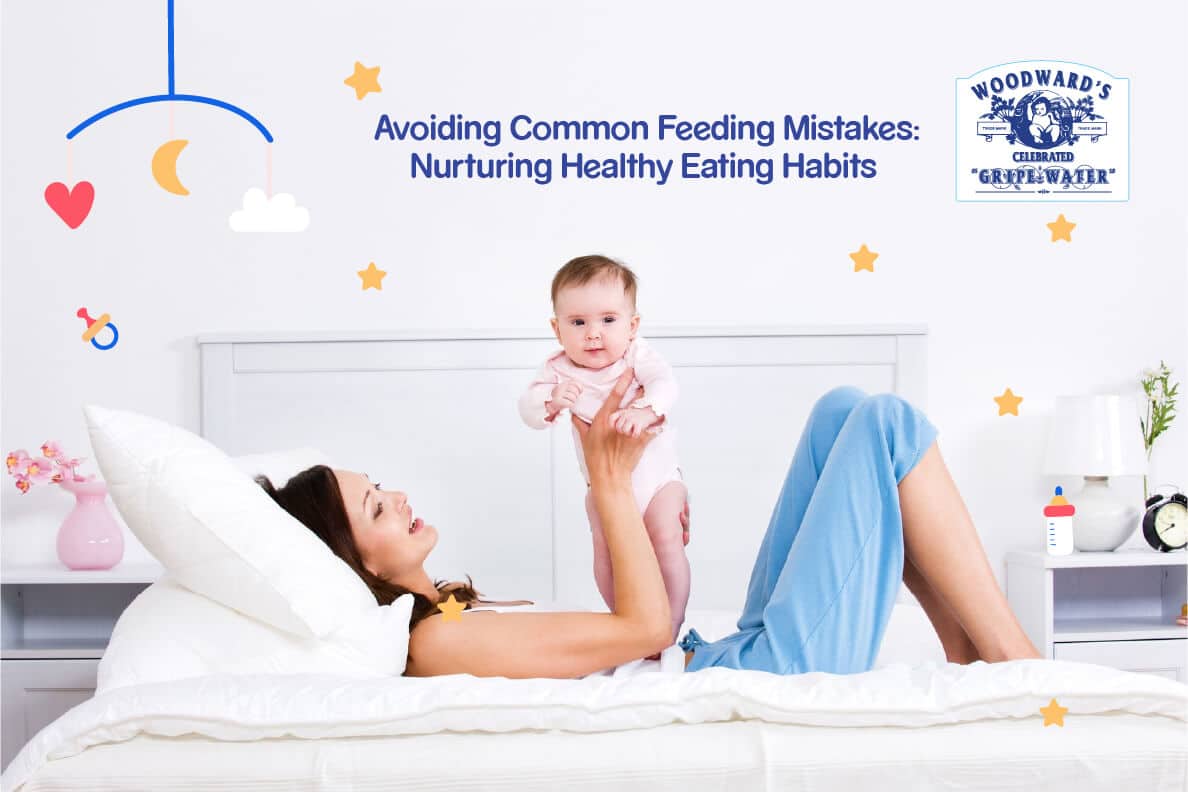Avoiding Common Feeding Mistakes: Nurturing Healthy Eating Habits

Embarking on the journey of parenthood is a continuous learning experience, and one crucial aspect that demands careful attention is feeding. Developing and maintaining healthy eating habits for your baby requires avoiding common feeding mistakes. In this comprehensive guide, we’ll explore these pitfalls and provide insights on how to navigate the path to nurturing healthy eating habits for your little one.
- Understanding Your Baby’s Cues
As parents, it’s vital to recognize that our babies are effective communicators, even from a very young age. Ignoring their hunger or fullness cues can lead to overfeeding and disrupt the establishment of healthy eating habits. To ensure you are responding appropriately, pay close attention to your baby’s signals, such as slowing down during feeds, turning away from the bottle or breast, and relaxed body language.
- Steering Clear of Overfeeding Pressures
One common mistake is pressuring your baby to finish a bottle, particularly when they are showing signs of fullness. This approach can lead to discomfort and overfeeding. It’s crucial to let your baby dictate the pace of their meal, respecting their cues and allowing them to decide when they’ve had enough.
- Deciphering Fussiness
Babies express themselves through various cries, and not every fussy moment indicates hunger. Misinterpreting every cry as a hunger cue may lead to unnecessary feedings and overfeeding. Take the time to understand the different cries and respond accordingly, considering factors such as diaper changes, tiredness, or the need for comfort. In times like these Gripe water for babies is an option that you can trust.
- Mindful Use of Pacifiers
While pacifiers offer comfort, overusing them can impact your baby’s ability to self-regulate their feeding. Be mindful of when and how often you introduce pacifiers, ensuring they don’t interfere with your baby’s natural feeding instincts. Reserve pacifiers for soothing moments rather than as a substitute for hunger.
- Timing for Solid Foods Introduction
Introducing solid foods too early can result in overfeeding and digestive issues for your baby. It’s essential to wait until your baby is developmentally ready and to follow the guidance provided by your healthcare provider. Starting solids at the appropriate time contributes to the establishment of a balanced and healthy eating routine.
- Promoting a Positive Feeding Environment
By steering clear of these common feeding pitfalls, you’re not only promoting healthy eating habits but also fostering a positive and stress-free feeding environment. Recognizing and respecting your baby’s cues, avoiding pressure feeding, and introducing solids at the right time contribute to a strong foundation for a healthy relationship with food.
Practical Tips for Nurturing Healthy Eating Habits
Consider the following practical tips to further enhance the development of healthy eating habits in your baby:
- Feed on Demand: Respond promptly to your baby’s hunger cues, allowing them to dictate the pace and quantity of their meals.
- Pay Attention to Hunger Cues: Be attuned to subtle signs of hunger, such as increased alertness, rooting, or sucking motions.
- Avoid Pressure Feeding: Create a relaxed feeding environment by avoiding pressuring your baby to finish a bottle or feed when they’re not interested.
- Introduce Solids Gradually: Follow your healthcare provider’s recommendations and introduce solid foods gradually, starting with single-ingredient purees.
- Monitor Fullness Cues: Observe cues that indicate your baby is full, such as turning away from the bottle or breast, closing their mouth, or showing disinterest.
- Woodward’s Gripe A trusted remedy providing symptomatic relief for your baby’s colic, easing fussiness.
By incorporating these guidelines into your parenting journey, you can create a positive and stress-free feeding environment while fostering a strong connection with your little one. Remember, it’s a journey of learning and growing together, one meal at a time.
